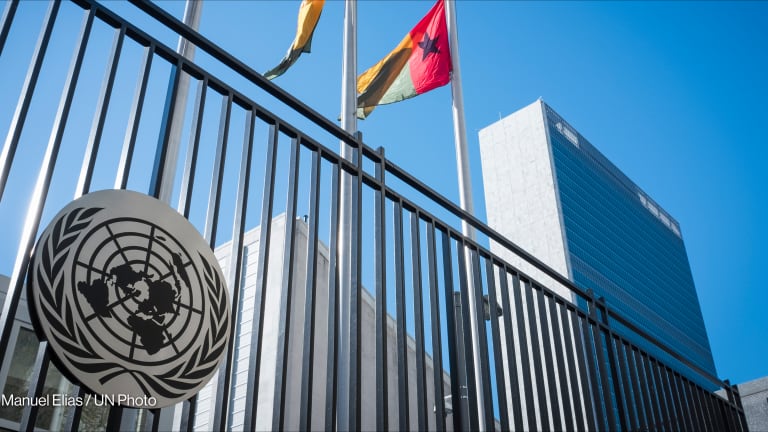The United Nations Manhattan headquarters will be the site of not one but two world leader summits next week: The Summit of the Future and the U.N. General Assembly high-level debate, which will bring together presidents, prime ministers, ambassadors, and a small army of private NGOs.
Among the attendees are U.S. President Joe Biden, delivering his farewell address to the 193-member General Assembly, Indian Prime Minister Narendra Modi, who will speak at the Summit of the Future, and French President Emmanuel Macron, who skipped last year’s U.N. summit. No-shows include Chinese President Xi Jinping and Russian President Vladimir Putin, who faces an arrest warrant from the International Criminal Court. U.S. Vice President Kamala Harris is not scheduled to address either high-level meeting, but she and former President Donald Trump are likely to be a hot topic for conversion. Here at Devex, we will tell you who among the thousands of attendees is worth keeping a close eye on.
The Nobel Peace Prize-winning economist will make his first appearance as the head of state of Bangladesh, replacing former Prime Minister Sheikh Hasina, who resigned and fled the country in August after years in power in the face of mass protest demonstrations. Yunnus is reportedly planning to come to New York with a small delegation. The event should provide an opportunity to demonstrate whether he can assure Bangladesh is back on track. The ascendance of Yunus — a pioneer in microfinance and founder of the Grameen Bank — has been extraordinary, given he was sentenced in January to six months in jail on charges of violating labor laws, a charge his followers claimed was politically motivated. Yunus has insisted he is innocent of the charges.








